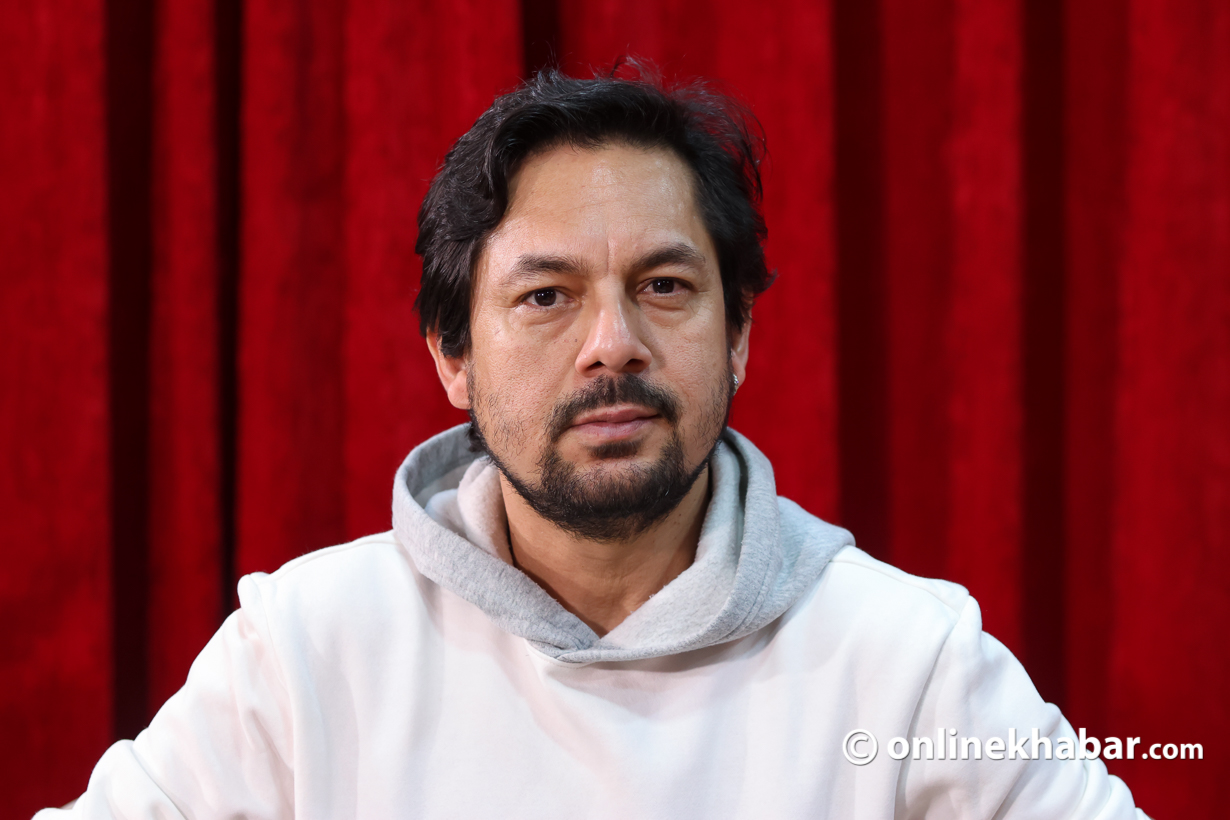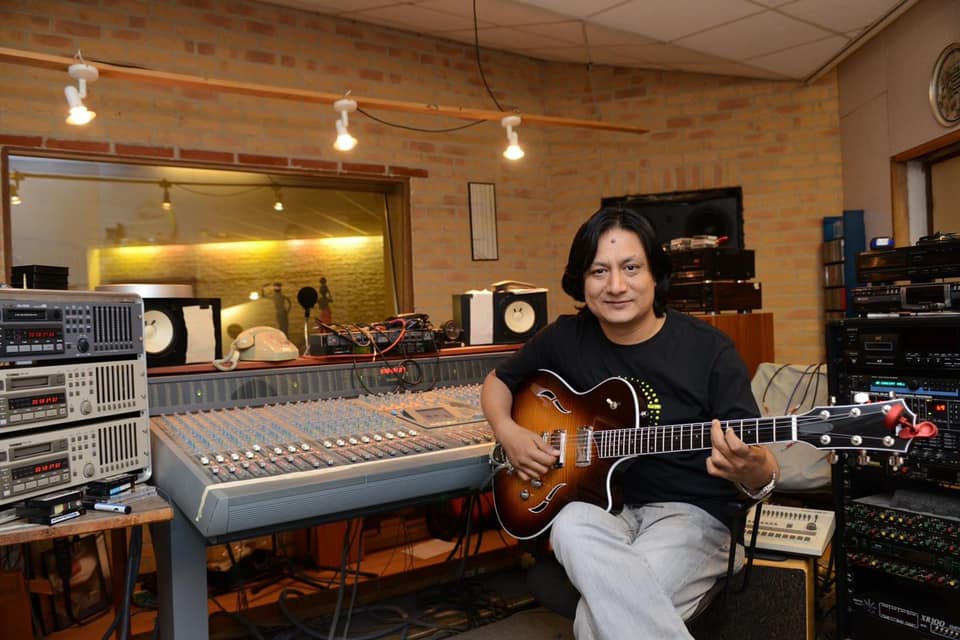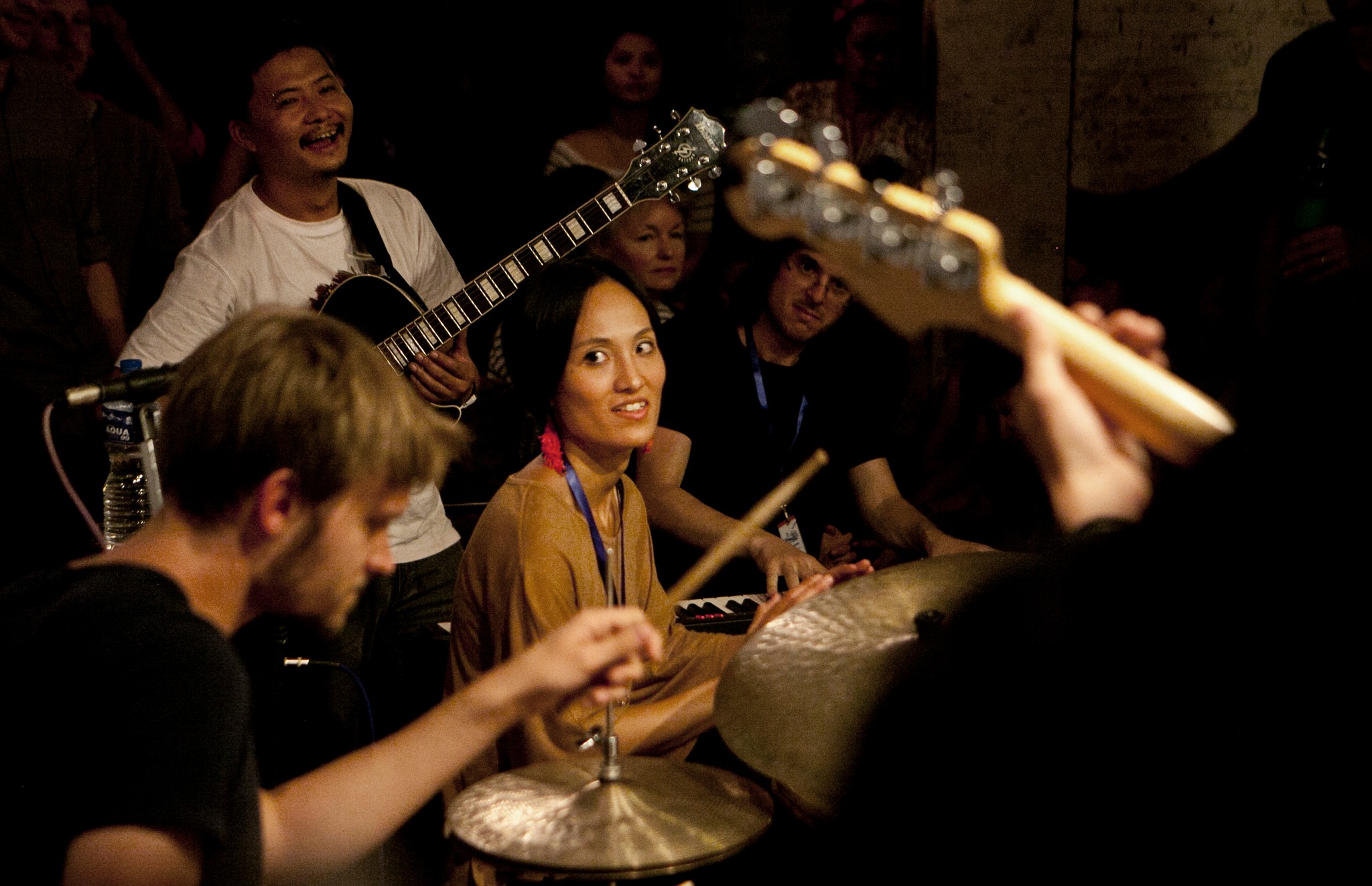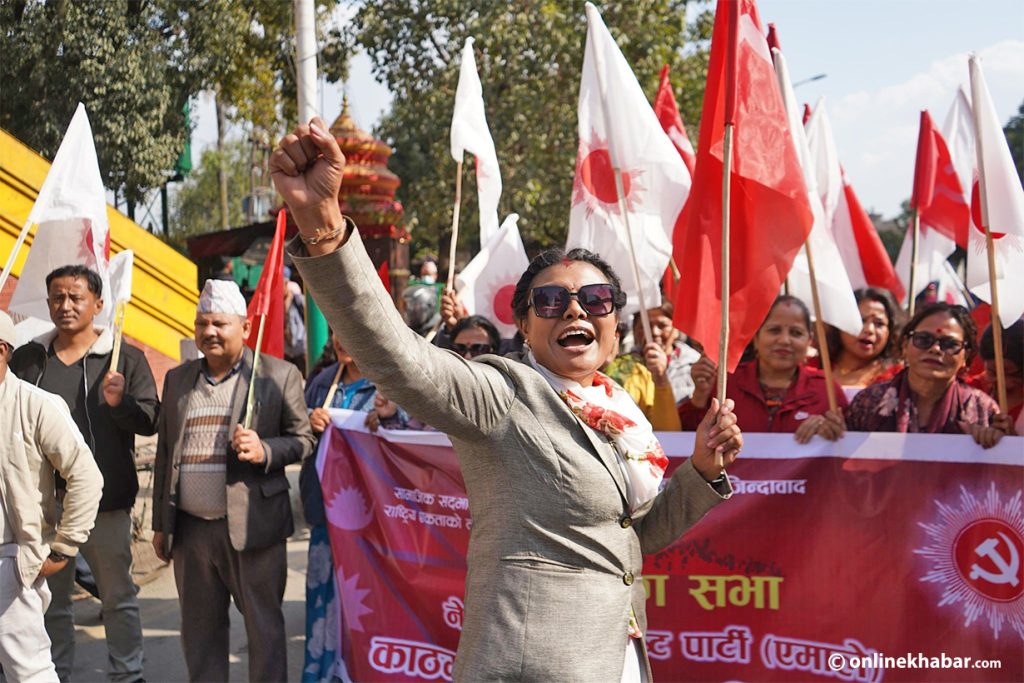Growing up in Kathmandu, Diwas Gurung never thought that he would make it in the music industry let alone be one of Nepal’s most sought-after music producers. In the span of three decades that he has dedicated to music, he has been a part of bands in Nepal and the US, done multiple solo projects and worked with the biggest up-and-coming stars Nepal has to offer in Bartika Eam Rai, Bikki Gurung, Yugal Gurung and most recently Dibesh Pokharel aka Arthur Gunn.
“It’s great to be working with people like these,” says Gurung. “I get to learn things as well which, in the music business, helps you evolve in a way.”
Apart from producing music, Gurung is also a singer and songwriter. His lyrics are meaningful and nostalgic. He takes people back in time with his soulful vocals and rhythmic melodies. There are many who say that his production exploits have overshadowed his singing ability. While he continues to produce music for himself, in the near future, he wants to start a studio in Nepal, make music for himself and help the new age of Nepali musicians and singers reach a more global stage.
“I want to share what I have learnt. If that helps a Nepali become big globally, that is just a bonus.”
Hobby into profession
Gurung first picked up a guitar when he was ten-years-old. Listening to bands like ACDC, Metallica and artists like Steve Vai, he grew a love for the instrument. But, with the instrument hard to play, Gurung gave up initially only to pick it up again when he was 14.
What started as a hobby became an obsession, and he and his guitar were inseparable. Whenever he was free, he would pick it up and play until he was tired.
“There was a time when my parents had to hide the guitar because I would rather play the guitar than study.”
By the 2000s, his guitar skills improved as he started to listen and practise guitar-centric songs. As he got better, he started to get offers to join bands. One band, in particular, was keen on his services as he fit their style and genre perfectly.
“Albatross were in transition during that time. And, as I had free time before I left for the US, I decided to join them.”
Even though Albatross now are more progressive, when Gurung was a part of them, they were more influenced by heavy metal as they emulated bands like Pantera and Sepultura.
“Since I was into guitar a lot, I loved it. Best years of my life I think as playing with them was a really fun experience,” he says, “I enjoyed it a lot as back then, all I wanted to do was play music. I was addicted.”
Same passion in new place
But in 2002, he left Nepal for the US to pursue a degree in economics, and with that, his musical journey in Nepal came to an end.
With one journey ending, another one started in Ithaca, a small college town in the suburbs of New York.
Even though he was interested in music, he still thought that studying it as a major was not practical. He felt that the structure was too rigid and that musicians needed flexibility and freedom to ensure that they made the right type of music. “Studying music never appealed to me. I believed that it was something I would be better at by practising.”
While in college, he met Shrikhar Bajracharya who lived with his family in Ithaca. The two then formed a band called Ayurveda which was a rock-based band with a progressive style that is ambient, heavy, and alternative with electronic and Nepali influences.
“Shikhar, like me, was obsessed with guitars and we connected straight away.”
By 2006, they were doing shows across the US catering to both US and Nepali audiences and were recording albums and EPs. The band were also involved in Gurung’s Rato Mato, which was a collection of old classic Nepali songs.
“As I was no longer a student, I was offered a visa as a cultural artist by the US government. For that, I had to do cultural shows on a regular basis and we started one called Nepali Folk Night at Ithaca itself.”
During that time, he started to listen to old Nepali classics hoping to cover them in his own style. That is how, in 2009, Rato Mato came to be.
“We felt that if we did an album, it would solidify what we were doing at the folk night and it would be good evidence for my visa application, which during that time, I had to renew every year.”
From playing to producing
Thanks to Rato Mato, he started to get noticed. Gurung and Bajracharya started to tour the US to places where Nepali diaspora were present. That is not it, he and his band were also invited to come to play in Nepal. But, they never had the chance as the band broke up in 2013.
“It wasn’t a formal breakup, but we just had different priorities, which is all good.”
After that, Gurung moved to Brooklyn, New York, where he continued to make music while doing different jobs. Initially, it was hard for him to make music as he normally did that with Ayurveda’s drummer Mike Parker who worked at a studio, but with it not being practical to go there anymore, he started to learn the art of production.
“I spent around 10,000 hours recording and producing the album Jharana Sahar in 2015. Learned a lot, experimented a lot. It was truly an album I could call my own as Rato Mato was done with help from Mike and others from Ayurveda.”
Confident enough to produce music, he then started to get requests from people within his circle to produce and mix music for them. His first paid gig was a project for Sumnima Rai, a US-based singer/songwriter.
After that, he continued to produce and mix songs for low-fi artists, but he was still figuring out a lot of things. Music production was just another thing he did to pay his bills and survive in New York.
But, his career really blew up when Bartika Eam Rai contacted him to produce and engineer her album Bimbaakash.
“It was unexpected for both of us. After that, I started to do this full time as I got contacted by a lot of artists who wanted to work with me.”
He says that working with these young artists is a lot of fun, mainly, when he and the artists are on the same page.
“They approach me ’cause they relate to my sound. If we can find common ground, working becomes quite fun.”
He says working with Bartika, Phosphenes, Yugal and Dibesh was quite easy as they already had an idea of what they wanted their sound to be like. And that, he says, made work easy for him. But that said, with some artists, it is quite hard and takes multiple tries to find the right balance.
“It’s just part of the job, I guess, because I’ve been producing indie, low-fi and pop songs, so sometimes finding the common ground is a bit hard.”
He says that he wants his clients to have the same feeling that he had when he produced his first song: The feeling of elation, joy and pride.
“I don’t have the feeling myself because I’ve been doing this for so long I almost feel jaded. Producing my own songs, I think, I sometimes overdo it as I don’t get a second opinion. But, in their case, they can tell me if they don’t like a certain thing and we can work on it.”
Currently, he is working on releasing his album along with producing music for others. Even though he has released most of the songs, he says, he still wants to release his album as he does not want to keep it on hold for long.
“If I do that, it’ll be on hold forever which is why my main focus right now is to release this album as soon as possible.”



























